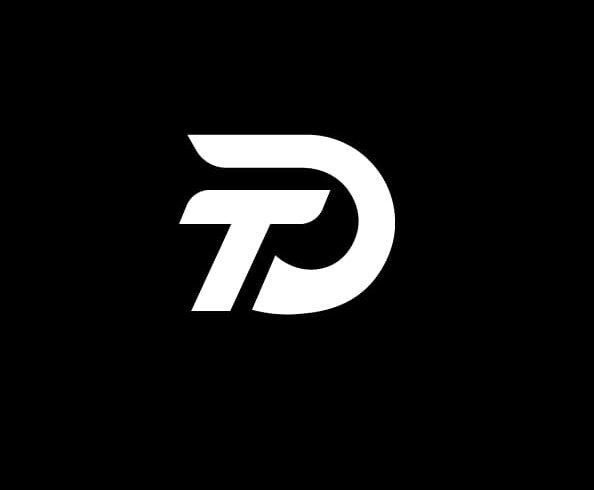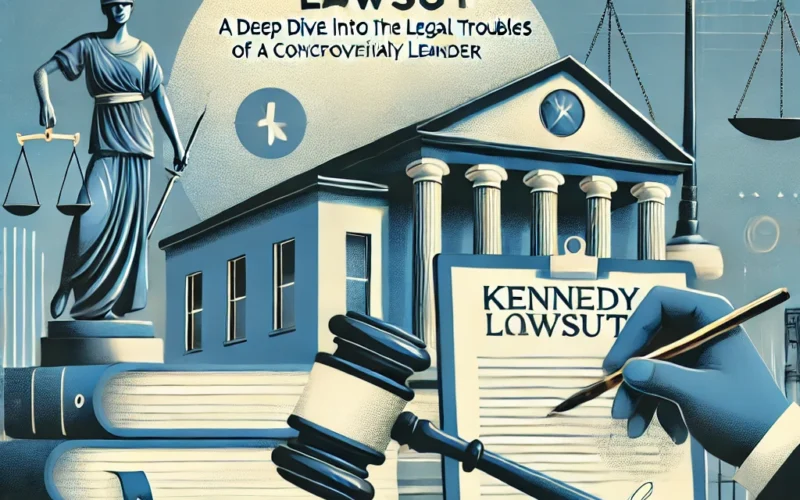Kennedy Funding, Inc. has been a prominent name in the commercial real estate lending industry for years. However, the company has also faced significant legal challenges. The Kennedy Funding lawsuit saga is an intricate series of legal battles that shed light on the company’s business model, legal risks, and the potential consequences for its borrowers. In this article, we’ll explore the most notable lawsuits against Kennedy Funding, discuss the impact on borrowers, and provide insights into the broader legal landscape surrounding commercial lending.
Kennedy Funding’s Business Model and Legal Risks
Kennedy Funding’s primary business model revolves around offering high-risk commercial real estate loans, also known as bridge loans. These loans are typically short-term and cater to borrowers who cannot secure funding from traditional institutions. Bridge loans are designed to “bridge the gap” between immediate financing needs and more permanent financial solutions, such as long-term loans or property sales.
While this business model allows Kennedy Funding to serve a niche market, it also exposes the company to significant legal risks. The nature of high-risk lending often involves borrowers who may default or find themselves unable to meet the terms of the loan. As a result, Kennedy Funding lawsuits often center around allegations of predatory lending, deceptive loan agreements, and questionable business practices.
Background of Kennedy Funding Lawsuits
Kennedy Funding, founded in 1985, quickly grew into one of the most recognizable names in the real estate lending sector. The company carved a niche by offering loans to commercial developers, real estate investors, and others who faced rejection from traditional banks. However, the company’s aggressive lending practices have led to numerous legal challenges.
One of the most well-known Kennedy Funding lawsuits involves a case from 2010, where the company was accused of mishandling loan agreements and engaging in deceptive business practices. These lawsuits highlight the recurring issues surrounding the company’s business operations and the legal risks associated with high-risk lending.
Major Lawsuits Against Kennedy Funding
Shelton v. Kennedy Funding, Inc. (2010)
The most prominent Kennedy Funding lawsuit involves Virgil Shelton, a former Arkansas property owner. Shelton sold the Rest in Peace Cemetery to Willie Acklin, who later sought a loan from Kennedy Funding to cover financial obligations. Kennedy Funding granted the loan, but complications arose when the company withheld $675,000 that was supposed to be paid to Shelton.
The case ultimately reached the Eighth Circuit Court of Appeals, where Shelton argued that Kennedy Funding violated the Arkansas Statute of Frauds by not honoring the initial loan agreement. The court sided with Shelton, awarding him compensatory damages totaling $675,000. This case remains one of the most significant legal battles against Kennedy Funding, highlighting the company’s questionable practices.
Kennedy Funding v. Greenwich Landing, LLC (2010)
In another notable Kennedy Funding lawsuit, the company found itself on the other side of the courtroom, acting as the plaintiff. Kennedy Funding issued a mortgage to Greenwich Landing, LLC, but complications arose when the company attempted to foreclose on the property. The legal battle centered on whether Kennedy Funding, acting as an agent for multiple parties, had the legal right to foreclose.
The court ultimately ruled in favor of Kennedy Funding, allowing the foreclosure process to continue. This case demonstrates how the company’s involvement in complex financial deals can lead to legal disputes that further complicate its operations.
Legal Framework Governing Commercial Real Estate Lending
The legal issues surrounding Kennedy Funding are rooted in both state and federal laws governing commercial real estate lending. One of the most important legal frameworks relevant to Kennedy Funding lawsuits is the Truth in Lending Act (TILA). This federal law requires lenders to fully disclose the terms and costs associated with a loan, ensuring that borrowers are informed of all obligations before signing a loan agreement.
In many of the lawsuits involving Kennedy Funding, plaintiffs have argued that the company violated TILA by failing to provide clear and transparent loan terms. Additionally, state-level regulations often impose additional requirements on lenders to ensure fairness and protect borrowers from predatory practices. Despite these legal protections, Kennedy Funding has been accused of skirting around the laws to maximize profits, as seen in the Shelton v. Kennedy Funding case.
Impact of Kennedy Funding’s Lawsuits on Borrowers
Borrowers who have dealt with Kennedy Funding often find themselves embroiled in legal disputes that can have lasting consequences. Many borrowers argue that they were misled by the company’s loan agreements, resulting in financial losses and, in some cases, foreclosure on their properties. The Kennedy Funding lawsuits serve as a cautionary tale for those seeking financing through non-traditional lenders.
One of the most common complaints from borrowers is that Kennedy Funding’s loan terms were not clearly communicated. In some cases, borrowers allege that they were unaware of the full cost of the loan or the potential penalties for default. These issues have led to numerous lawsuits, with plaintiffs seeking compensation for damages caused by the company’s deceptive practices.
Industry-Wide Implications of Predatory Lending Practices
The legal battles faced by Kennedy Funding are not unique to the company. The commercial lending industry, particularly the niche of high-risk loans, has come under increased scrutiny for its predatory lending practices. The Kennedy Funding lawsuits have reignited discussions about the need for stricter regulations and oversight in the lending industry to protect borrowers from unscrupulous practices.
As more borrowers become aware of the risks associated with bridge loans and other high-risk financial products, lenders may be forced to adopt more transparent and ethical business practices. Social media and online platforms have given borrowers a voice, allowing them to share their experiences and raise awareness of the dangers of predatory lending.
Recent Developments in Kennedy Funding Lawsuits
In recent years, Kennedy Funding has continued to face legal challenges. One such case involves a lawsuit filed by Quimera Holding, accusing Kennedy Funding of fraud. The details of the case remain unclear, as court records have yet to be fully updated. However, this case, along with others, suggests that the company’s legal troubles are far from over.
Another ongoing Kennedy Funding lawsuit involves a complaint filed by Vladimir Isperov, who accused the company of engaging in fraudulent activities. Like the Quimera Holding case, the outcome of this lawsuit is still pending, but it adds to the growing list of legal challenges that Kennedy Funding has faced over the years.
Future Legal Outlook for Kennedy Funding
Looking ahead, the future of Kennedy Funding may be shaped by the outcomes of these lawsuits and the company’s ability to adapt to an evolving regulatory landscape. If plaintiffs continue to secure favorable verdicts, Kennedy Funding may face increased financial strain, which could impact its ability to operate. Additionally, growing awareness of the company’s predatory practices could deter potential borrowers from seeking loans.
However, Kennedy Funding has shown resilience in the past, managing to reduce the impact of some lawsuits and continuing to operate despite negative publicity. The company’s future success will likely depend on its willingness to embrace more transparent business practices and comply with federal and state lending laws.
Lessons for Borrowers: How to Protect Yourself from Predatory Lenders
For potential borrowers, the Kennedy Funding lawsuits offer important lessons. When dealing with high-risk lenders, it’s crucial to carefully review loan agreements and seek legal advice before signing any documents. Borrowers should be aware that lenders offering quick, high-risk loans are often more interested in maximizing profits than providing fair and transparent terms.
Key Steps to Protect Yourself
- Consult with a lawyer: Always have a legal professional review any loan agreement to ensure that the terms are clear and that you fully understand your obligations.
- Research the lender: Look into the lender’s reputation and check for any history of legal disputes or complaints.
- Ask for full disclosure: Make sure the lender provides all necessary information about the loan, including fees, interest rates, and penalties for default.
- Avoid high-risk loans unless necessary: If possible, seek out traditional lenders that offer lower-risk loans with more favorable terms.
Conclusion: The Lasting Impact of Kennedy Funding Lawsuits
The Kennedy Funding lawsuits have had a lasting impact on both the company and the commercial lending industry as a whole. While Kennedy Funding has managed to weather many of its legal challenges, the company’s reputation has been tarnished by accusations of fraud, predatory lending, and deceptive business practices.
As the legal landscape surrounding commercial real estate lending continues to evolve, Kennedy Funding and other high-risk lenders may face increased pressure to adopt more ethical and transparent business practices. For borrowers, the lessons learned from these lawsuits are clear: do your research, seek legal advice, and proceed with caution when dealing with non-traditional lenders.

